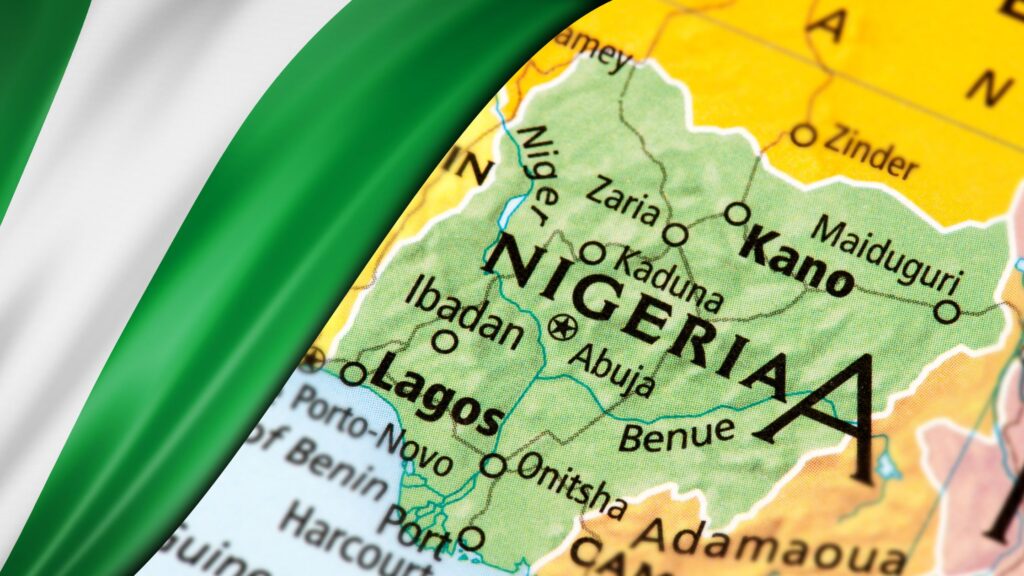
As we commemorate Nigeria’s Independence Day celebration in the month of October 2024, we see it as a good opportunity to travel back in time to share notable activities relating to our independence as well as celebrate the bravery of the heroes that made it happen. So enjoy this quick read showing some key facts on Nigeria’s Independence.
9 important facts about Nigeria’s Independence:
- Nigeria was formed in 1914.
The land area known today as Nigeria was formed in 1914 when British colonial authorities merged the Northern and Southern Protectorates of Nigeria, to form the amalgamated Protectorate and Colony of Nigeria. - Nigeria gained independence in 1960.
Nigeria gained independence from the British empire in 1960, initially adopting a British style of government with Abubakar Tafawa Balewa as the first Nigerian head of government (prime minister) - The National Anthem: Nigeria, We Hail Thee was first used upon independence in 1960, the lyrics were written by Lillian Jean Williams. It was replaced by “Arise, O Compatriots” in 1978. “Nigeria, We Hail Thee” has officially been readopted on 29 May 2024. Click here to learn the lyrics.
- The Flag of Nigeria: Green White Green flag was officially hoisted on 1 October 1960, it was designed by Michael Taiwo Akinkunmi. The two green stripes represent natural wealth, and the white represents peace and unity.
- The Coat of Arms: Created and adopted in May 1960. The Coat of Arms consists of Black shield and colorful wreath over the shield which stands for fertile soil of Nigeria; White horses mean dignity; Red Eagle is for the strength of the nation; White lines in the “Y” shape stand for two main rivers of Nigeria: Benue and Niger; Yellow Trumpet or Costus Spectabilis is the national flower of Nigeria. The flower is placed on the ground where the shield is standing. It represents the beauty of the country and its nation; “Unity and Faith, Peace and Progress” is the Nigerian national motto.
- Becoming a Republic: Although Nigeria gained independence from the United Kingdom on 1 October 1960, the nation retained the British monarch, Elizabeth II, as titular head of state until the adoption of a new constitution in 1963 declaring the nation a republic.
- Nigerian Currency: Nigeria introduced its own currency, the Nigerian pound, in 1958, replacing the British West African pound. The Nigerian pound was later replaced by the Naira in 1973.
- The Country’s Capital: Lagos was the national capital of Nigeria until the government’s December 1991 decision to move the capital to Abuja in the Federal Capital Territory, though Abuja was created by a decree in 1976.
- Heroes that championed the Independence:
- Herbert Olayinka Macaulay: Often referred to as the “father of Nigerian nationalism,” Herbert Macaulay was a grandson of Ajayi Crowther, the first African Anglican Bishop of West Africa. He was one of the political leaders who strongly opposed colonial policies in Nigeria. In 1923, he founded Nigeria’s first political party, the Nigerian National Democratic Party (NNDP), and in 1944, he co-founded the National Council of Nigeria and the Cameroons (NCNC) together with Nnamdi Azikiwe.
- Nnamdi Benjamin Azikiwe: He’s a prominent nationalist leader, was one of the driving forces behind Nigeria’s independence attainment in 1960. Azikiwe played a crucial role in inspiring nationalist sentiments through his writings and speeches. He used his chain of newspapers- the first of which was the West African Pilot – to promote nationalism and pro-African agenda. Azikiwe became Nigeria’s first President in 1960, he died in 1996 at 91 in Enugu.
- Obafemi Jeremiah Awolowo: He was a popular nationalist and statement, who contributed significantly to Nigeria’s independence struggle. As a member of the Nigerian Youth Movement, Awolowo represented Nigeria at the fifth Pan-African Congress in Manchester, a platform dedicated to advancing conversations on the decolonization of Africa. From 1952 to 1959, Awolowo served as the first Premier of the Western Region under Nigeria’s parliamentary system. He was the official Leader of the opposition in the federal parliament to the Balewa government from 1959 to 1963.
- Ahmadu Ibrahim Bello: Ahmadu Bello was a prominent leader from Northern Nigeria fondly referred to as the Sardauna of Sokoto. He was the leader of the Northern People’s Congress (NPC), a political party that represented the interests of the northern region. After his return from England, he was nominated to represent the province of Sokoto in the regional House of Assembly and subsequently became the first Premier of Northern Nigeria in 1954.
- Anthony Eromosele Enahoro: Anthony Enahoro was a fearless anti-colonial and nationalist activist cum politician with a distinguished career in the press, politics and civil service. He moved the famous motion for Nigeria’s independence in 1953 at 30, followed it through by being a delegate to most of the constitutional conferences leading to Nigeria’s independence following sustained pressure from other activists and nationalists.
- Ernest Ikoli: As the first editor of the Daily Times, Ernest Ikoli is remembered in Nigerian history as one of the pacesetters of Nigerian journalism and nationalism struggle. Ikoli co-founded the Nigerian Youth Movement (NYM) in 1934 to advocate for self-governance and independence from British colonial rule. Ikoli’s NYM promoted the welfare of Nigerians and advocated for self-rule. The political organization played a crucial role in the nationalist movement in Nigeria with its vigorous campaigns for the independence.
Despite challenges, Nigeria’s independence marked a significant turning point in its history, fostering a spirit of resilience and unity that continues to inspire generations.

0 Comments